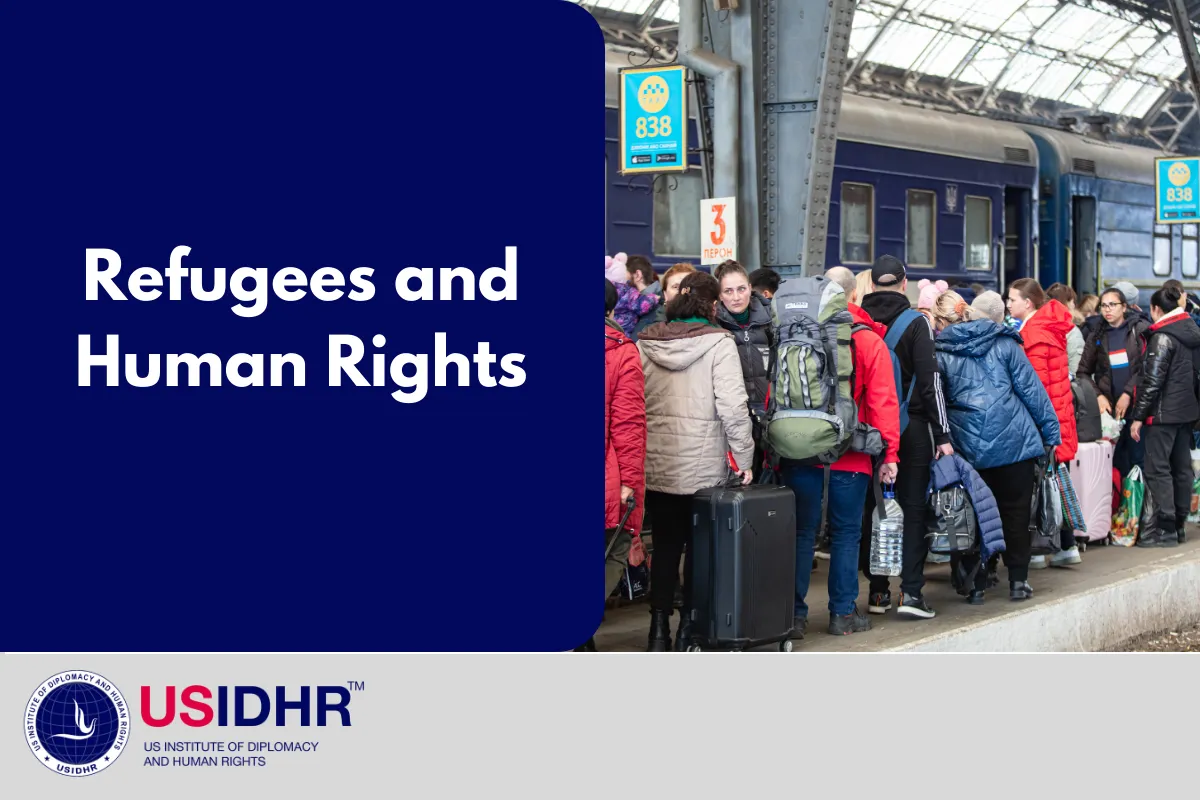
Refugees and Human Rights
What do Albert Einstein, Jackie Chan, and the Dalai Lama all have in common? The answer: They were all refugees. Sadly today many refugees are dehumanised and vilified, but refugees are human beings, so they are entitled to human rights. The United Nations Declaration of Human Rights was written in 1948 to protect every human being no matter where they were born, what language they speak, or what religion they follow. In 2021, 73 years later, there are over 80 million displaced refugees and asylum seekers around the world who require this document to access their human rights. Unfortunately, human rights abuses take place daily against refugees, so how can we help fight against this?
What is the difference between a refugee, an asylum seeker, and an immigrant?
Firstly though, we need to clarify who a refugee is and what is the difference between an asylum seeker and a refugee. The 1951 Refugee Convention defines a refugee as ‘an individual who is outside his or her country of nationality or habitual residence, who is unable or unwilling to return due to a well-founded fear of persecution based on his or her race, religion, nationality, political opinion, or membership in a particular social group’. This means that someone is forced to leave their home simply for being who they are. Comparatively, an asylum seeker is someone who is seeking international protection from dangers in their country, but their claim for refugee status has not yet been determined legally.
Crucially then every refugee was an asylum seeker at some point. Moreover, a migrant is someone who moves from place to place (this can be internally in a country) not because of a direct threat but mainly to improve their lives through finding a better job, receive better education or join their family. In comparison, an immigrant has made a conscious decision to leave their home and move to a foreign country with an intention to settle. These distinctions are important to remember when it comes to talking about refugees and human rights, although there are many crossovers.
Migrants and refugees have different legal rights
It is important we use the correct terminology because, unlike refugees who cannot safely return home, migrants can travel home if they wish. This distinction is important for governments since countries handle migrants under their own immigration laws and processes. Notably, refugees are protected by international law, specifically the 1951 Refugee Convention, which is part of many countries’ laws such as the United Kingdom. Another key statute of protection is Non-Refoulement which is an important part of international law and prohibits a country from returning a refugee back to a country, perhaps their home country, where their human rights are at risk of being violated.
The Key Human Rights
As mentioned, every human being is entitled to the rights listed in the Declaration of Human Rights, but which ones specifically affect refugees and are sometimes mistreated? There are six which are particularly important for refugees:
Article 3 claims ‘Everyone has the right to life, liberty, and security of person’. This means you have the right to live your life freely and without risk of persecution.
Article 5 notes that ‘No one shall be subjected to torture or to cruel, inhuman or degrading treatment or punishment’ meaning if you are subjected to violence or torture by anyone, including governments, this is a violation of your human rights.
Article 13 promises ‘Everyone has the right to leave any country, including his own, and to return to his country’ so everyone has the human right to leave their country if they want or need to.
Article 14 states that ‘Everyone has the right to seek and to enjoy in other countries asylum from persecution’ and this is essential for refugees as this shows it is within their human rights to seek asylum in a safe country, and notably this doesn’t have to be the first safe country they reach.
Article 23 allows ‘Everyone has the right to work’ however many countries and governments ban asylum seekers from working, which is actually a violation of their human rights.
Article 26 claims ‘Everyone has the right to education’ yet sadly up to 48% of school-aged refugees are out of school.
If it is enshrined in international law then why are so many refugees and asylum seekers denied their human rights on a daily basis? If Article 23 protects the right to work, why are asylum seekers banned from working in many countries? If Article 14 protects the right to claim asylum, why are so many denied entry or sent back to their original countries, even if their lives are in immediate danger?
Unfortunately, there is no one easy answer. Some governments do not prioritize the rights of refugees as they see them as a ‘burden on their economies’ however this myth is simply not true. Refugees actually contribute a lot to the economies of their host countries and in fact, some governments ban asylum seekers from working. A Lift the Ban report concluded that if this ban was lifted, net gains for the UK government could increase by £97.8 million. Another myth is that refugees are arriving in ‘swarms’ in Western countries. This is completely false as 86% of refugees are hosted in ‘developing countries‘. Many times, due to the accessibility of legal aid, some refugees are unaware of their human rights, meaning they are left vulnerable to exploitation and abuse. This is why education around human rights is so essential to further progress around preventing the exploitation and abuse of refugees.
How can I help?
Society today must remember that refugees are human beings and therefore have human rights. We should all fight for the protection of refugees and asylum seekers, as it is purely by chance where we are born. For example, Bob Marley and Freddie Mercury were refugees, which demonstrates how anyone can become a refugee. One way you can help improve the protection of refugee’s human rights is by joining the over 1000 human rights consultants at the USIDHR who chose to learn about these rights in order to pass on the knowledge to others. Our 8 module Human Rights certificate equips you with the skills and expertise needed to further spread the word on human rights, whether this is through providing your own workshops or seminars or delivering classes on protecting the rights of refugees. Change won’t happen without education, so let’s start today.
Reference list:
https://odihpn.org/magazine/the-human-rights-act-and-refugees-in-the-uk/
https://www.un.org/en/about-us/universal-declaration-of-human-rights
https://www.refugee-action.org.uk/wp-content/uploads/2020/07/Lift-The-Ban-Common-Sense.pdf
https://www.refugee-action.org.uk/wp-content/uploads/2020/07/Lift-The-Ban-Common-Sense.pdf
https://refugeeweek.org.uk/resources/facts-figures-and-contributions/famous-refugees/#:~:text=Albert%20Einstein%20%E2%80%93%20One%20of%20the,Physicist%2C%20Italian%2DJewish%20refugee.

